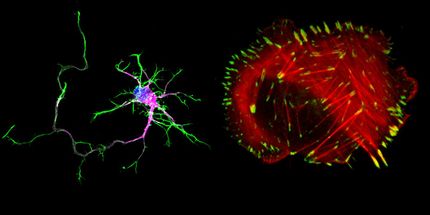Single gene mutation induces endometrial cancer
Advertisement
A mutation in a single gene can cause endometrial cancer that is responsive to a specific drug therapy, researchers at UT Southwestern Medical Center have found in an animal study. The finding suggests that eventually it might be possible to screen women with endometrial cancer to see if they have that mutation and use the drug as targeted therapy, the researchers said.
"Our data suggest that deficiency of this gene can indicate both how aggressive an endometrial tumor will be and how well it might respond to a specific class of drugs," said Dr. Diego Castrillon, assistant professor of pathology at UT Southwestern and senior author of the paper, which appears in Disease Models and Mechanisms.
"Some early clinical trials have shown that about one-fifth of women with endometrial cancers respond to a group of drugs called 'rapalogs,'" Dr. Castrillon said. "Unfortunately, it is not currently possible to predict which women these are."
The researchers focused the gene Lkb1, which is known to suppress other types of cancers. Mutations in Lkb1 disrupt its "braking" action on cancer and contribute to the disease in lungs, skin and other tissues. In the current study, the researchers genetically engineered mice to inactive Lkb1 only in the endometrium. Without Lkb1, the entire endometrium became cancerous early and rapidly, they found. The researchers found that treating the cancerous mice with the anti-cancer drug rapamycin slowed the progression of the cancers and dramatically shrank existing tumors.
"We hope that someday a test based on this gene or others like it might pinpoint which women would respond best to treatment with 'rapalogs,'" Dr. Castrillon said. "Such personalized medicine could spare other women from unnecessary chemotherapy if their tumors are unresponsive to the drugs."






















































